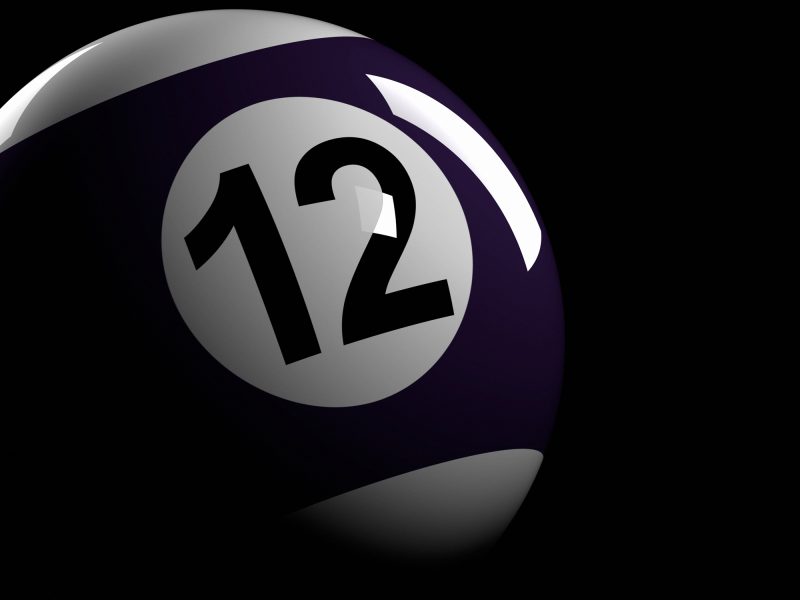Posted on: Saturday, October 13th 2018 at 9:00 am
Written By: GreenMedInfo Research Group

Research indicates that you don't need drugs to control blood sugar. Food, herbs, and spices are the future of medicine
Over 80 million Americans have insulin resistance that can lead to diabetes. And you could be on the road to diabetes for 10 years or more and never even know it. Here's what happens.
The hormone insulin directs your cells to open up and take in glucose from the blood. With insulin resistance, your cells become desensitized to insulin. They ignore the instructions to open up and take in glucose. Your body keeps producing more insulin to try to get the message heard. But it doesn't work. And your insulin levels rise higher and higher.
Those chronically high insulin levels cause rapid weight gain, premature aging, high blood pressure, heart disease, and higher cancer risks. Eventually they lead to type 2 diabetes.
Herbs, spices and foods are your first line of defense. Here are eight that can help restore and maintain your cells' sensitivity to insulin.
1. Turmeric: 100% Effective In Preventing Diabetes
A 2009 study found curcumin, an active compound found in turmeric, was 500 to 100,000 times more effective than the prescription drug Metformin at activating glucose uptake.[i]
In another study of 240 pre-diabetic adults, patients were given either 250 milligrams of curcumin or a placebo every day. After nine months, NONE of those taking curcumin developed diabetes but 16.4% of the placebo group did. In other words, the curcumin was 100% effective at preventing Type 2 diabetes.
2. Ginger: Lowers Fasting Blood Glucose by 10.5%
In a randomized, double-blind, placebo-controlled trial 88 diabetics were divided into two groups. Every day one group received a placebo while the other received 3 one-gram capsules of ginger powder. After eight weeks, the ginger group reduced their fasting blood sugar by 10.5%. But the placebo group INCREASED their fasting blood sugar by 21%. In addition, insulin sensitivity increased significantly more in the ginger group.[ii]
In another study, researchers proved that 1600 mg per day of ginger improves eight markers of diabetes including insulin sensitivity.[iii]
Many other studies prove the value of ginger for diabetes. For a complete list of studies visit Green Med Info's page on Ginger Health Benefits.
3. Cinnamon: Less Than Half a Teaspoon A Day Reduces Blood Sugar Levels
Cinnamon is one of the oldest spices and most popular spices. It's been used for millennia both for its flavoring and medicinal qualities.
Cinnamon has been shown to normalize blood sugar levels in type 2 diabetics by improving the ability to respond to insulin. A meta-analysis of eight clinical studies shows that cinnamon or cinnamon extracts lower fasting blood glucose levels.[iv]
Cinnamon works in part by slowing the rate at which the stomach empties after eating. In one study subjects ate about a cup of rice pudding with and without about a teaspoon of cinnamon. Adding the cinnamon slowed the rate the stomach emptied from 37% to 34.5% and significantly slowed the rise in blood sugar levels. Even less than a half of a teaspoon a day reduces blood sugar levels in type 2 diabetics.[v]
Here are 5 more reasons to eat cinnamon every day.
4. Olive Leaf Extract: Results Comparable to Metformin
University of Auckland researchers proved that olive leaf extract decreases insulin sensitivity.
In a randomized, double-blinded, placebo-controlled study, 46 overweight men were divided into two groups. One group received capsules containing olive leaf extract and the other group received a placebo. After 12 weeks, olive leaf extract lowered insulin resistance by an average of 15%. It also increased the productivity of the insulin-producing cells in the pancreas by 28%.[vi]
The researchers noted that supplementing with olive leaf extract gave results "comparable to common diabetic therapeutics (particularly metformin)."
5. Berries Lower After-Meal Insulin Spike
Studies show the body needs less insulin for sugar balance after a meal if berries are also eaten. In a study of healthy women in Finland, subjects were asked to eat white and rye bread with or without a selection of different pureed berries. Starch in the bread alone spikes after-meal glucose levels. But the researchers found that adding berries to the bread significantly reduced the after-meal insulin spike.
Strawberries, bilberries, lingonberries, and chokeberries were effective. So was a mixture consisting of strawberries, bilberries, cranberries, and blackberries.[vii]
6. Black Seed (Nigella Sativa): Just 2 Grams Reduces Insulin Resistance
In a study of 94 diabetic patients, researchers prescribed either 1, 2 or 3 grams a day of Nigella sativa capsules. They found that at the dose of 2 grams per day, black seed significantly reduced fasting blood glucose and insulin resistance. The higher dose of 3 grams per day did not result in additional benefits.[viii]
Black seed has been treasured for thousands of years for its healing properties. It is sometimes referred to as Roman coriander, black sesame, black cumin, and black caraway. It's been called the remedy for everything but death.
7. Spirulina Increases Insulin Sensitivity by 225%
In a randomized study of insulin-resistant patients, researchers compared the power of spirulina and soy to control insulin levels.[ix] They assigned 17 patients to receive 19 grams of spirulina a day. The other 16 patients received 19 grams of soy. After eight weeks the spirulina group on average increased their insulin sensitivity by 224.7% while the soy group increased their insulin sensitivity by 60%.
In addition, 100% of the spirulina group improved their insulin sensitivity while only 69% of the soy group improved.
8. Berberine Just As Good as Three Different Diabetes Drugs
Berberine is a bitter compound found in the roots of several plants including goldenseal, barberry, and Oregon grape. Studies prove it's just as good as prescription diabetes drugs.
Chinese researchers compared berberine to metformin in a pilot study of 36 patients. They found berberine lowered blood sugar levels just as well as metformin in just three months. The patients also significantly decreased their fasting blood glucose, and their after-meal blood glucose.
In the same study, researchers gave berberine to 48 diabetics for three months. After only one week, berberine lowered both fasting and post-meal blood glucose levels. In addition, their insulin resistance dropped 45%.[x]
Other researchers conducted a meta-analysis of 14 studies involving 1,068 participants. They found berberine performed just as well as metformin, glipizide and rosiglitazone. Those are three of the top diabetes drugs on the market.[xi] And berberine has no serious side effects.
For more than 70 studies on this herbal compound visit Green Med Info's page on berberine
References
[i] Teayoun Kim, Jessica Davis, Albert J Zhang, Xiaoming He, Suresh T Mathews. Curcumin activates AMPK and suppresses gluconeogenic gene expression in hepatoma cells. Biochem Biophys Res Commun. 2009 Oct 16;388(2):377-82. Epub 2009 Aug 8. PMID: 19665995
[ii] Hassan Mozaffari-Khosravi, Behrouz Talaei, Beman-Ali Jalali, Azadeh Najarzadeh, Mohammad Reza Mozayan. The effect of ginger powder supplementation on insulin resistance and glycemic indices in patients with type 2 diabetes: A randomized, double-blind, placebo-controlled trial. Complement Ther Med. 2014 Feb ;22(1):9-16. Epub 2014 Jan 8. PMID: 24559810
[iii] Tahereh Arablou, Naheed Aryaeian, Majid Valizadeh, Faranak Sharifi, Aghafatemeh Hosseini, Mahmoud Djalali. The effect of ginger consumption on glycemic status, lipid profile and some inflammatory markers in patients with type 2 diabetes mellitus. Int J Food Sci Nutr. 2014 Feb 4. Epub 2014 Feb 4. PMID: 24490949
[iv] Paul A Davis, Wallace Yokoyama. Cinnamon intake lowers fasting blood glucose: meta-analysis. J Med Food. 2011 Sep ;14(9):884-9. Epub 2011 Apr 11. PMID: 21480806
[v] Joanna Hlebowicz et al, "Effect of cinnamon on postprandial blood glucose, gastric emptying, and satiety in healthy subjects." Am J Clin Nutr June 2007 vol. 85 no. 6 1552-1556
[vi] Martin de Bock, José G B Derraik, Christine M Brennan, Janene B Biggs, Philip E Morgan, Steven C Hodgkinson, Paul L Hofman, Wayne S Cutfield. Olive (Olea europaea L.) leaf polyphenols improve insulin sensitivity in middle-aged overweight men: a randomized, placebo-controlled, crossover trial.
[vii] Riitta Törrönen, Marjukka Kolehmainen, Essi Sarkkinen, Kaisa Poutanen, Hannu Mykkänen, Leo Niskanen. Berries reduce postprandial insulin responses to wheat and rye breads in healthy women. J Nutr. 2013 Apr ;143(4):430-6. Epub 2013 Jan 30. PMID: 23365108
[viii] Abdullah O Bamosa, Huda Kaatabi, Fatma M Lebdaa, Abdul-Muhssen Al Elq, Ali Al-Sultanb. Effect of Nigella sativa seeds on the glycemic control of patients with type 2 diabetes mellitus. Indian J Physiol Pharmacol. 2010 Oct-Dec;54(4):344-54. PMID: 21675032
[ix] Azabji-Kenfack Marcel, Loni G Ekali, Sobngwi Eugene, Onana E Arnold, Edie D Sandrine, Denis von der Weid, Emmanuel Gbaguidi, Jeanne Ngogang, Jean C Mbanya. The Effect of Spirulina platensis versus Soybean on Insulin Resistance in HIV-Infected Patients: A Randomized Pilot Study. Nutrients. 2011 Jul ;3(7):712-24. Epub 2011 Jul 18. PMID: 22254118
[x] Yin J, Xing H, Ye J. Efficacy of berberine in patients with type 2 diabetes mellitus. Metabolism May 2008;57(5):712-7 Pubmed 18442638
[xi] Dong H, Wang N, Zhao L, Lu F. Berberine in the treatment of type 2 diabetes mellitus: a systemic review and meta-analysis. Evid Based Complement Alternat Med. 2012;2012:591654 Pubmed 23118793

The GMI Research Group (GMIRG) is dedicated to investigating the most important health and environmental issues of the day. Special emphasis will be placed on environmental health. Our focused and deep research will explore the many ways in which the present condition of the human body directly reflects the true state of the ambient environment.
Disclaimer: This article is not intended to provide medical advice, diagnosis or treatment. Views expressed here do not necessarily reflect those of GreenMedInfo or its staff.

.jpg)


